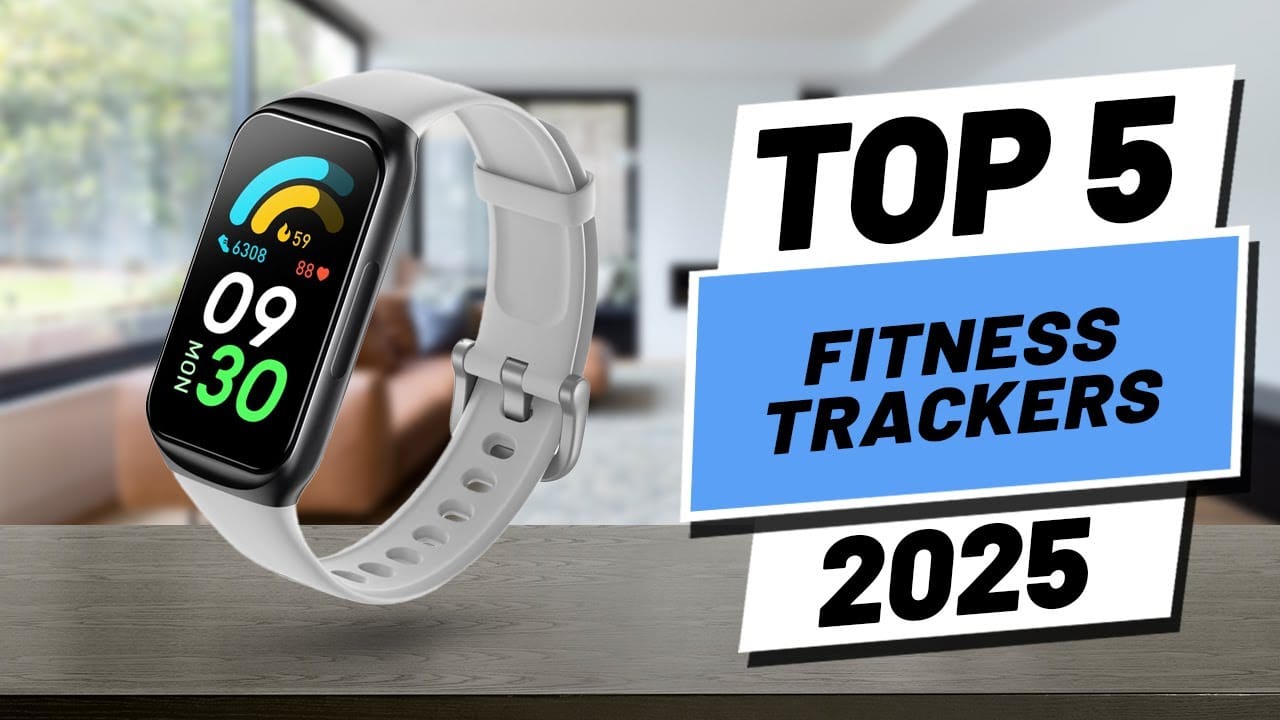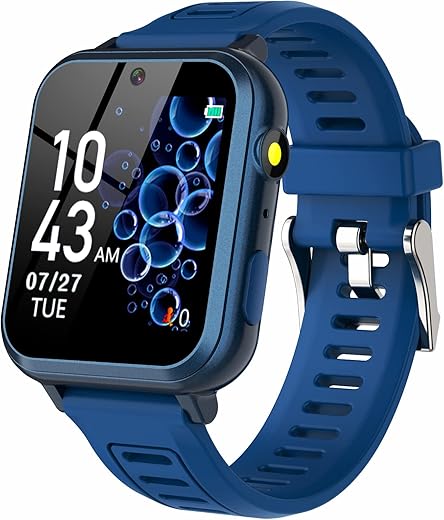Choosing a Fitness Tracker for Sleep Tracking Accurate and Perfect Fit for Small Wrists
Getting quality sleep is essential for maintaining overall health, boosting your energy, improving mood, and supporting physical and mental well-being. In today’s health-conscious world, many individuals increasingly rely on fitness tracker for sleep tracking accurate data to monitor and improve their sleep patterns. Whether you’re a dedicated fitness enthusiast or simply want to understand your sleep quality better, the right device makes all the difference.
For those with smaller wrists, the quest becomes more specific—finding a fitness tracker for small wrists that combines accuracy, comfort, and style can seem daunting. Fortunately, several innovative options are available, designed to cater specifically to users with petite wrists while providing reliable sleep insights. This comprehensive guide explores everything you need to know about selecting the best sleep tracking fitness tracker, focusing on key features, top models suitable for small wrists, and tips for optimizing your sleep health.
Understanding the Importance of Accurate Sleep Tracking
Sleep is a vital cornerstone of health, yet many people often underestimate how essential proper sleep tracking is for maintaining overall well-being. Precise measurement of sleep cycles, duration, and quality can uncover underlying issues such as sleep apnea, restless sleep, or poor sleep hygiene that might be affecting your daytime performance.
The Role of Sleep in Overall Health and Well-being
Sleep is not merely rest; it’s a complex biological process that impacts nearly every aspect of your health. During sleep, the body repairs tissues, consolidates memories, and regulates hormones—particularly those involved in stress, appetite, and immune function. Chronic sleep deprivation can lead to severe health issues, including cardiovascular disease, diabetes, depression, and weakened immunity.
Understanding your sleep patterns through a fitness tracker for sleep tracking accurate allows for a more informed approach to health. When you know how long and how well you sleep, you can make adjustments—like improving your bedtime routine, managing stress better, or seeking medical advice if necessary.
How Fitness Trackers Measure Sleep Patterns
Most fitness trackers utilize advanced sensors like accelerometers, gyroscopes, and sometimes even heart rate monitors to detect movement and physiological signals during sleep.
Actigraphy-based sensors, commonly found in wrist-worn devices, detect movements associated with sleep and wakefulness, providing estimates of sleep duration and quality. Some trackers also incorporate optical heart rate sensors to assess sleep stages more accurately—distinguishing REM sleep from deep sleep and light sleep.
Furthermore, algorithms process this data to produce sleep scores and insights, often presented through user-friendly mobile apps. These insights can help identify irregular sleep patterns, duration deficits, or disturbances that might not be apparent without detailed data.
Common Challenges in Sleep Data Accuracy
Despite technological advancements, various factors can influence the accuracy of sleep data recorded by fitness trackers. For instance:
- Incorrect Fit: A loose or overly tight tracker can result in unreliable readings.
- Limited Sensor Capabilities: Not all sensors are equal, and cheaper devices might have less precise sensors, leading to inaccuracies.
- Variability in Sleep Behaviors: Different sleep positions or movements could be misinterpreted as wakefulness or restless sleep.
- External Factors: Environmental noise, discomfort, or irregular schedules can cause discrepancies in data.
Choosing a device that prioritizes sensor quality and user comfort is essential in overcoming these challenges and achieving more reliable data.
Benefits of Reliable Sleep Tracking for Users
Accurate sleep data offers profound benefits, including:
- Personalized Sleep Goals: Understanding your baseline allows you to set realistic improvements.
- Identifying Sleep Disorders: Catch signs of potential health issues that need medical attention.
- Monitoring Progress: Track improvements over time as you adjust your sleep environment and routines.
- Enhanced Overall Well-being: Better sleep quality translates to increased energy, improved mood, and enhanced cognitive function.
In essence, investing in a fitness tracker for sleep tracking accurate is an investment in your overall health, making it easier to adopt healthier habits and improve your quality of life.
Features to Look for in a Sleep-Tracking Fitness Tracker

Selecting the perfect device involves understanding the key features that influence accuracy, comfort, and usability. Let’s delve into some critical aspects to consider.
Sensor Technology and Data Accuracy
The foundation of sleep tracking is sensor quality. Advanced sensors that combine accelerometers with optical heart rate monitors tend to provide the most precise data.
What to look for: Devices with multi-sensor arrays for motion and heart rate measurement, utilizing the latest PPG (photoplethysmography) technology, which can detect blood flow and improve sleep stage determination. Some premium models use ECG (electrocardiogram) sensors; however, these are typically found in dedicated medical devices.
Personal insight: For fitness tracker for sleep tracking accurate, investing in devices with proprietary algorithms that have been validated through clinical studies or peer-reviewed research will ensure dependable results.
Compatibility with Mobile Devices and Apps
A seamless user experience requires compatibility with your smartphone or tablet platform—whether iOS or Android. The corresponding app should offer comprehensive sleep reports, trends, and actionable insights.
What to consider: Look for trackers that sync effortlessly with popular health apps like Apple Health, Google Fit, or dedicated caregiver apps for deeper data analysis. The ability to export raw data is also a plus if you prefer detailed analysis.
Personal insight: A device with a user-friendly app interface makes it easier to interpret data and stay motivated. This is especially vital when managing sleep habits or sharing insights with healthcare providers.
Battery Life and Ease of Use
Long battery life minimizes interruptions and ensures continuous tracking without frequent charging. A device that lasts 5-14 days per charge reduces hassle and improves measurement consistency.
What to check: Opt for trackers with optimized power management systems—the longer the battery life, the less you need to worry about charging during sleep.
User experience tips: Choose models with simple, intuitive interfaces. Features like single-button controls or touch screens that are easy to navigate make daily use more convenient for users of all ages.
Design, Comfort, and Fit for Small Wrists
Comfort should be prioritized, especially because sleep tracking requires wearingthe device overnight. A well-designed fitness tracker is one that accommodates different wrist sizes, especially for those with smaller wrists who may struggle to find a comfortable fit.
What to look for: Investigate the options available for adjustable straps and varying sizes, as many manufacturers now offer specialized models designed for smaller wrists. Look for materials that are soft and breathable, as this contributes significantly to the overall comfort throughout the night. Silicone and fabric bands are typically more comfortable than rigid materials.
Personal insight: If you’re in the market for a fitness tracker for small wrists, seek out feedback from users with similar wrist sizes. A device that fits well not only enhances comfort but also aids in acquiring more accurate readings by ensuring that the tracker remains snug against the skin.
Additional Health Metrics and Features
Beyond sleep tracking, many modern fitness trackers come equipped with features that monitor other health metrics, amplifying their effectiveness as holistic health tools.
What to consider: Features like heart rate monitoring, stress tracking via heart rate variability, blood oxygen monitoring, and even skin temperature can provide a fuller picture of your overall health while you sleep.
Personal insight: As someone who values comprehensive health data, I’ve found that these additional metrics often shine light on how various activities during the day—like exercise or diet—can impact my sleep quality. A fitness tracker that offers extensive insights is not merely a sleep tracker; it’s a personalized health coach.
Top Fitness Trackers for Accurate Sleep Tracking
With numerous options in the market, identifying the best fitness trackers for sleep accuracy can be overwhelming. Here, we will narrow it down by listing features that define excellence.
Devices with Advanced Sensors and Algorithms
The hallmark of an excellent fitness tracker for sleep tracking accurate is its advanced sensor suite combined with intelligent algorithms. Trackers that utilize hybrid models, like using both accelerometer data alongside heart rate variability, can offer the deepest insights.
What to consider: Brands like Fitbit, Garmin, and Withings often have rigorous research backing their sleep algorithms. For example, Fitbit’s use of proprietary algorithms to interpret sleep stages is one feature that sets it apart.
Personal insight: It’s well worth investing in a tracker where clinical efficacy is demonstrated. Having access to academically validated insights not only builds confidence in the data but also aligns with more disciplined health practices.
User-Friendly Interfaces and Data Insights
A well-organized user interface can heavily influence engagement with the fitness tracker. You should be able to navigate through the app with ease, making it rewarding to consistently check your data.
What to look for: Dashboards that display time spent in different sleep stages, can help quickly identify patterns and areas that may require attention.
Personal insight: Many fitness trackers now employ gamification techniques, encouraging users to meet sleep goals akin to fitness objectives. These engaging methods can serve as motivation, prompting users to foster better habits.
Customer Reviews and Expert Recommendations
While technical specifications can indicate quality, genuine customer reviews offer insights into real-world performance.
Where to look: Platforms like Amazon, Best Buy, and dedicated fitness forums often feature consumer feedback that covers the reliability of sleep tracking features.
Personal insight: I often turn to review aggregators and blogs that focus purely on wearables, as they usually dissect performance extensively, allowing users to filter the noise and zero in on high-performance trackers.
Price Range and Value for Money
Budget considerations typically influence purchasing decisions, and with wearable technology, prices can vary widely.
What to consider: While it’s tempting to go for budget options, investing in a quality tracker often pays off in the long run—with better durability, longevity, and data reliability.
Personal insight: In the quest for the best fitness tracker for sleep tracking accurate, I’ve learned that a mid-range tracker often provides a balance of necessary features without breaking the bank. Tracking sleep should not break your budget, but understanding that value is often tied to quality will improve your long-term satisfaction.
Notable Models Suitable for Small Wrists
Some brands cater specifically to smaller wrist sizes, ensuring that everyone finds a suitable fit.
What to explore: Models like the Fitbit Inspire 2, Garmin Vivosmart 4, and Xiaomi Mi Band 6 are often lauded for their small size, comfort, and functionality without sacrificing performance.
Personal insight: Finding a tracker that emphasizes both comfort and data accuracy has been life-changing for my health journey. A perfect fit enhances the experience—proving that a snug design does not have to compromise on functionalities.
Fitness Trackers Designed for Small Wrists
Navigating the market for a fitness tracker tailored for small wrists demands attention to detail and an understanding of unique features that enhance fit and comfort.
Features That Enhance Fit and Comfort for Smaller Users
For users with smaller wrists, fit matters immensely, and innovative designs can significantly enhance comfort.
What to look for: An ergonomic approach to design is critical—devices with sloped edges reduce pressure points. Additionally, customizable straps provide a better fit.
Personal insight: I’ve found that trackers with adjustable bands, particularly those fashioned from soft materials, have made a significant difference in my comfort levels throughout the night.
Adjustability and Strap Options
Proper adjustability not only ensures comfort but also aids in accurate tracking by maintaining sensor contact with the skin.
What to consider: Models that allow for extensive customizations, like interchangeable straps, can accommodate various wrist sizes and styles.
Personal insight: Investing in straps tailored to one’s preferences—even color and material—can transform the tracker from a merely functional device to a part of your personal aesthetic.
Comparative Analysis of Popular Small Wrist Models
A comparative insight into notable devices available for smaller wrists can clarify choices.
What to explore: Trackers like Garmin Lily, Fitbit Charge 4, and WHOOP Strap are often recommended due to their size, ergonomic design, and effective sleep tracking capabilities.
Personal insight: Each of these models has distinct advantages, but often, one’s choice should boil down to specific health monitoring needs—whether you are looking for a basic tracker or something that provides comprehensive fitness insights.
Tips for Ensuring Proper Fit and Accurate Readings
Once a suitable device is chosen, ensuring it fits correctly is crucial for optimal functionality—even forthose fitness tracker for sleep tracking accurate readings.
What to consider: A snug fit is essential, but it shouldn’t be so tight that it creates discomfort. Testing the fit before wear, adjusting as necessary, and always ensuring the device is aligned properly on the wrist enhances the accuracy of the readings.
Personal insight: Through trial and error, I’ve discovered that adjusting my tracker each night lets my skin breathe while also ensuring the sensors capture deeper data necessary for meaningful analysis.
Durability and Water Resistance Considerations
For a fitness tracker to be effective, it must also withstand the rigors of daily life and environmental factors.
What to explore: Look for trackers with ratings like IP68 or above, indicating water and dust resistance. This feature is particularly valuable if you plan on wearing the device during workouts or in varying conditions.
Personal insight: A robust tracker not only tells you about your sleep habits but also stays functional through workouts and in the shower, offering a seamless transition through active and restful periods of life.
Enhancing Sleep Tracking Accuracy
To truly get the most from a fitness tracker, users must take an active role in enhancing its performance, ensuring accurate sleep tracking that informs their overall health journey.
Tips for Optimizing Tracker Performance Overnight
Getting the most accurate sleep data means establishing practices that align with the device’s capabilities.
What to consider: Ensure the tracker fits snugly to minimize motion-related inaccuracies. Additionally, establishing a consistent bedtime routine can help the device learn your sleep patterns over time.
Personal insight: Creating a sleep sanctuary, with optimal conditions such as darkening the room and limiting blue light exposure, pairs well with accurate tracking, allowing for clearer insights into how lifestyle changes enhance sleep quality.
Pairing Trackers with Other Sleep Monitoring Devices
For those striving for the pinnacle of accurate tracking, consider integrating other sleep monitoring tools alongside your fitness tracker.
What to explore: Devices like sleep rings or under-mattress sensors can provide additional data points that smartphones and wrist-worn trackers may overlook.
Personal insight: In my experience, using both a wrist tracker and a supplemental device has revolutionized my ability to monitor sleep quality, allowing for a broader perspective on my nightly patterns.
Interpreting Sleep Data Effectively
Interpreting the sleep data accurately can drastically impact the adjustments one makes towards health improvements.
What to consider: Focus on sleep cycles, disturbances per hour, and total time in different sleep stages to identify trends. Understanding these metrics relative to lifestyle changes can illuminate areas for improvement.
Personal insight: Keeping a sleep journal to correlate feelings and energy levels with tracked data can empower users, allowing them to make notable adjustments in their routines.
Common Mistakes to Avoid in Sleep Tracking
Many enter the world of sleep tracking with misconceptions that could undermine the effectiveness of their devices.
What to avoid: Misreading sleep scores or misattributing tiredness to external factors without considering the data can lead to mismanagement of health.
Personal insight: Regularly analyzing how my tracker measures various factors has become invaluable; rather than relying on feelings alone, I ensure I utilize numerical data to inform my lifestyle choices.
When to Consult Healthcare Professionals for Sleep Issues
Ultimately, navigating sleep-related concerns may sometimes require professional input, especially if tracker data highlights red flags.
What to explore: Seeking professional help upon noticing consistent trends of poor sleep quality or suspected sleep disorders promotes a proactive approach to health.
Personal insight: Keeping an extensive record of sleep data at hand has proven beneficial in consultations with healthcare providers—offering tangible evidence rather than subjective accounts of sleep quality.
Conclusion
Choosing an accurate fitness tracker, particularly one suited for small wrists, requires careful consideration of various factors, including sensor quality, compatibility, comfort, and added features. As we’ve explored, understanding the intricacies of sleep can significantly influence the holistic health journey one takes.
A fitness tracker for sleep tracking accurate isn’t just a gadget; it’s a powerful tool that can provide insightful and actionable data. By equipping yourself with the right device, understanding nuanced features, and learning how to interpret and act upon sleep data, you place the power of better health in your hands. Ultimately, prioritizing sleep is fundamental to enhancing overall well-being, making the selection of the right fitness tracker an essential investment in your health journey.






